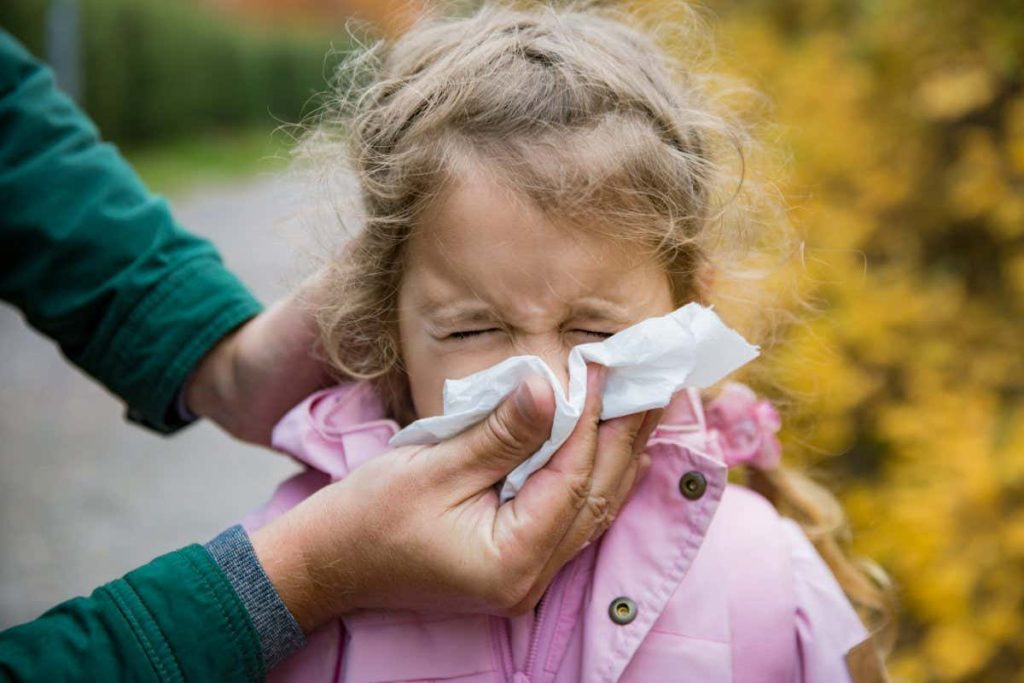The covid-19 lockdowns undoubtedly saved many lives, but the prolonged restrictions also reduced our exposure and immunity to other infections, which could be set to spike in the UK this winter
Health 29 November 2022
By Clare Wilson
Children may be more susceptible to seasonal infections such as the respiratory syncytial virus (RSV) this winter compared with in pre-pandemic years
Suzi Media Production/Getty Images/iStockphoto
The following is an extract from our Health Check newsletter. Each week, we explore the latest goings-on in health, whether it be the results of a study, a new infectious outbreak or the initiation of a pivotal clinical trial. You can sign up for Health Check here.
I have been debating with some of my colleagues about whether there is a post-lockdown “immunity debt”. This is the idea that some countries are experiencing more respiratory infections than in pre-pandemic years because of the lasting impact of the lockdowns used to control the spread of covid-19.
The concept is accepted by many doctors, so I was surprised to see that there have been a few articles in the press saying there is no such thing as immunity debt. These were mainly from US news sites, but there was also an opinion piece in the UK’s Financial Times (behind its paywall) that claimed immunity debt is a “misguided and dangerous concept”.
Advertisement
The confusion is partly because the term “immunity debt” means different things to different people. Fanning the flames is the fact that anything to do with the coronavirus, and how countries responded to it over the first two years of the pandemic, has become politically polarised.
It seems that at one extreme there are the covid cautious – in favour of prolonged lockdowns, and mandatory face masks and vaccines – while at the other there are covid denialists, who say there was never any need for such measures. Or perhaps I spend too much time on Twitter.
So, what are the facts? There is no doubt that in the first two northern-hemisphere winters of the pandemic there were far fewer cases of winter infections, such as flu, respiratory syncytial virus (RSV) and some other respiratory illnesses, compared with in pre-pandemic years.
It isn’t controversial to say this is the most likely explanation for the current high rates of such infections in places such as the UK and the US. Rates of flu in England, for instance, have so far been generally more than double the equivalent figures for the winters beginning in 2018 and 2019. In fact, the UK Health Security Agency said in September this was one reason why the country’s flu vaccination campaign was so important this year.
When it comes to RSV, doctors are writing papers in medical journals calculating the number of extra cases of RSV due to immunity debt, such as this one that appeared in The Lancet Infectious Diseases in September. UK paediatricians are concerned that children will face a perfect storm of health issues this winter.
By all these measures, immunity debt is a very real phenomenon.
On the other hand, some commentators on social media who lean towards covid denialism argue that the current higher levels of respiratory infections show that children’s immune systems have been damaged by their lack of exposure to the normal childhood infections. To be clear, this is not the case.
Some children will just be getting the illnesses they would ordinarily have had one or two years ago, although the fact they are happening all at once can overwhelm health services. UK paediatrician Alasdair Munro argues here that there could be overall more infections in the years following lockdowns than there would have been if all the cases had happened as normal, because of the complex mix of factors that normally govern the rise and fall of population immunity.
Whether he’s right or not, immunity debt doesn’t support the argument that we shouldn’t have had lockdowns. In the first year of the pandemic, the infection-fatality rate for covid-19 was over 1 per cent. It doesn’t bear thinking about how many deaths there would have been if the virus had been allowed to spread unchecked.
Thanks to the arrival of vaccines and the milder omicron variant becoming dominant, the current covid-19 infection-fatality rate is thought to have fallen below 0.04 per cent in the UK, which is the rate for seasonal influenza. This contributed to almost all countries abandoning most covid-19 restrictions at varying timepoints in 2022.
But arguments are still raging about which was the better covid-19 policy initially – to lock down or let it rip. And that colours nearly every new development in the coronavirus story, including which population groups should be offered booster vaccines and, of course, the latest focus on immunity debt.
The FT opinion piece I mentioned earlier tries to resolve these differences by saying that it is true that lockdowns cause immunity debt at the population level, but not at the individual level. But to me that’s a false division.
The long-term impacts of lockdown are certainly affecting individuals, such as those who now have flu who might not have caught it otherwise. They also affect individuals who have difficulties accessing medical care because services are overwhelmed, as is happening in some parts of the UK.
It is possible for two things to be true: it was right to have lockdowns and yet the restrictions also had downsides. Pretending those downsides don’t exist when they are staring us in the face doesn’t win any arguments.
More on these topics:

